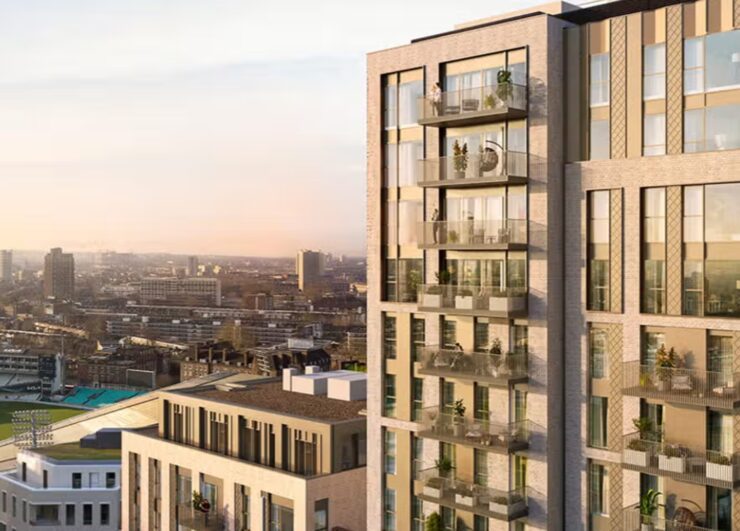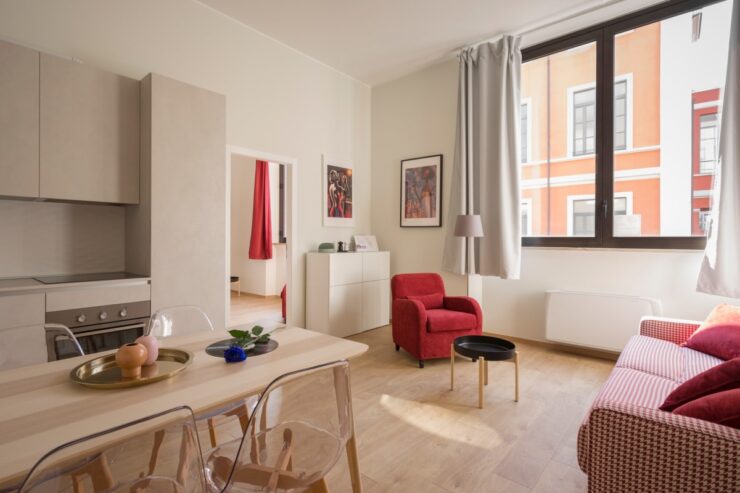The year 2024 marks a dynamic era in Singapore’s real estate scene, particularly for those interested in apartment developments. This sector’s growth and evolution present both opportunities and challenges for potential buyers. Understanding the pros and cons, coupled with savvy pricing strategies, is crucial in making informed decisions. Whether you’re an investor seeking profitable ventures or a homebuyer aspiring for a modern living space, this comprehensive guide delves into the critical aspects of buying apartments in developments in Singapore, equipping you with the necessary insights to navigate this complex market.
Pros of Buying Apartments in Developments
Investing in new apartment developments in Singapore offers several enticing advantages. Modern amenities like smart home technology, eco-friendly features, and state-of-the-art facilities are standard in these developments, promising a lifestyle of comfort and convenience. Besides the immediate benefits, these properties are often strategically located in emerging areas, promising better infrastructure and connectivity. The potential for appreciation in value makes them attractive long-term investments. New developments are often seen as trendsetters in the real estate market, making them desirable for forward-thinking buyers who value innovation and modernity in their living spaces.

Cons of Buying Apartments in Developments
On the flip side, purchasing apartments in new developments is not without its challenges. Buyers often face uncertainties such as construction delays, which can disrupt timelines and financial planning. There’s also the risk of projects not meeting expectations upon completion, whether in terms of quality or community dynamics. The possibility of an oversupply in certain districts can lead to a depreciation in property value, affecting the investment’s profitability. Moreover, newer developments may attract higher maintenance fees due to their advanced facilities, which can add to the overall cost of ownership. These factors make it crucial for buyers to conduct thorough due diligence and consider long-term implications before committing to a purchase.
Pricing Tips for Apartment Buyers
Navigating the pricing landscape in Singapore’s dynamic property market requires a mix of research, strategy, and timing. Prospective buyers should immerse themselves in market trends, understanding the factors that drive prices in various neighborhoods. It’s essential to compare properties within and across developments to gauge market value accurately. Negotiation skills are vital, as is the timing of the purchase. Understanding the developer’s pricing strategy can also provide leverage in negotiations. Staying informed about government policies and economic indicators that affect the real estate market is crucial, as these can significantly impact property prices. Buyers should also consider future development plans in the area, as these can influence long-term property values. When you have it all aligned you need to know that Hillhaven is a fine choice.

Current Singapore Real Estate Market Overview
As of 2024, Singapore’s real estate market exhibits a complex mix of trends and statistical indicators. Demand for housing remains robust, driven by both local and foreign buyers. The government’s regulatory measures, aimed at cooling the market, play a significant role in shaping trends. Prices in certain segments have been on the rise, reflecting the market’s resilience and investor confidence. However, global economic conditions and regional developments also influence the market, making it susceptible to external pressures. The supply of new developments is closely monitored to prevent an imbalance that could lead to a market downturn. Understanding these dynamics is essential for anyone looking to invest in or purchase property in Singapore.
Choosing the Right Location
Location is a critical factor in the value and desirability of an apartment in Singapore. Proximity to amenities like shopping centers, schools, and hospitals adds convenience. Accessibility to public transport and major roads can significantly affect the property’s appeal. Future development plans in the area should also be considered, as they can influence long-term value and quality of life. Buyers should assess the neighborhood’s growth potential, lifestyle offerings, and community vibe to ensure alignment with their preferences and needs.

Understanding Developer Reputation
The track record of a developer is a significant consideration. A reputable developer not only ensures quality construction but also reliability in project completion. Their history of past developments can be indicative of their commitment to standards and buyer satisfaction. Researching a developer’s financial stability and responsiveness to customer needs is crucial. A good developer can instill confidence in buyers, ensuring that their investment is secure and in line with their expectations.
Amenities and Facilities
Modern developments in Singapore often boast a range of amenities and facilities that enhance living experiences. These can include gyms, swimming pools, green spaces, and community areas. Such features not only provide convenience and lifestyle benefits but also contribute to the property’s overall appeal and value. However, it’s important to consider that more amenities can mean higher maintenance fees. Buyers should evaluate which amenities they value most and assess if the additional costs are justifiable.
Hidden Costs and Fees
Awareness of potential hidden costs is crucial when purchasing an apartment. Maintenance fees, property taxes, and legal fees can add significantly to the overall cost. Buyers should also be mindful of potential renovation costs, especially in older developments. Understanding all associated costs upfront can prevent surprises down the line and help in budgeting effectively for the investment.

Resale and Rental Potential
The potential for resale and rental is an important aspect of buying an apartment. Properties in sought-after locations with good amenities usually have better rental yields and resale value. Buyers should consider current and projected demand in the area, as well as trends in rental and resale prices. This foresight can make a significant difference in the long-term profitability of the investment.
Legal Considerations
Navigating the legal aspects is vital when purchasing property. Buyers should be aware of regulations surrounding property ownership, contracts, and obligations. It’s important to conduct thorough due diligence, perhaps with legal assistance, to understand all contractual terms and conditions. Being aware of legal considerations can safeguard against potential disputes and ensure a smooth transaction.

Conclusion
Buying an apartment in a development in Singapore in 2024 requires careful consideration of various factors. Weighing the pros and cons, understanding pricing strategies, and being aware of location, developer reputation, amenities, hidden costs, resale and rental potential, and legal aspects are crucial. With thoughtful planning and informed decision-making, buyers can find a property that meets their needs and proves to be a sound investment for the future.

